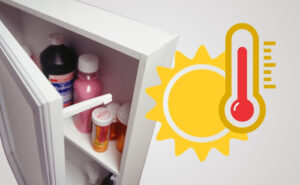
RSV is highly contagious and can spread easily from person to person through droplets from a sneeze or cough, or simply by talking. People can also be infected by touching their nose or eyes after touching contaminated items or surfaces, or by touching someone with RSV. A person is usually infectious for up to 10 days after symptoms begin.
Generally, RSV symptoms are mild, but can cause severe infection in not only younger babies 12 months and younger, but also in adults – especially those age 65 or older, people with heart and lung disease, or anyone with a weak immune system from disease such as cancer or treatment such as chemotherapy.
Symptoms commonly appear about four to six days after exposure to the virus and may include mild, cold-like symptoms such as:
In severe cases, RSV infection can spread to the lower respiratory tract, causing pneumonia or bronchiolitis – signs and symptoms may include:
Most children and adults recover in one to two weeks, although some might have repeated wheezing.
IMPORTANT! Seek immediate medical attention if you, or anyone at risk of severe RSV infection, has difficulty breathing, a high fever, or has a blue colour to the skin, particularly on the lips and in the nail beds.
Written by Paul Taylor
Paul Taylor is a New Zealand–based healthcare content writer with 5+ years’ experience creating patient friendly articles for online pharmacies and health platforms. He specialises in accessible condition guides, prescription FAQs, OTC advice, and health & wellbeing tips, translating complex medicines or health condition information into clear, actionable content. Paul collaborates with the ZOOM Pharmacy clinical team and bases every article on authoritative sources, peer reviewed journals and national clinical guidelines to ensure evidence based, up to date content. His goal is to help readers feel empowered to make informed decisions about their medicines and wellbeing. This content is general information only and does not replace professional medical advice.